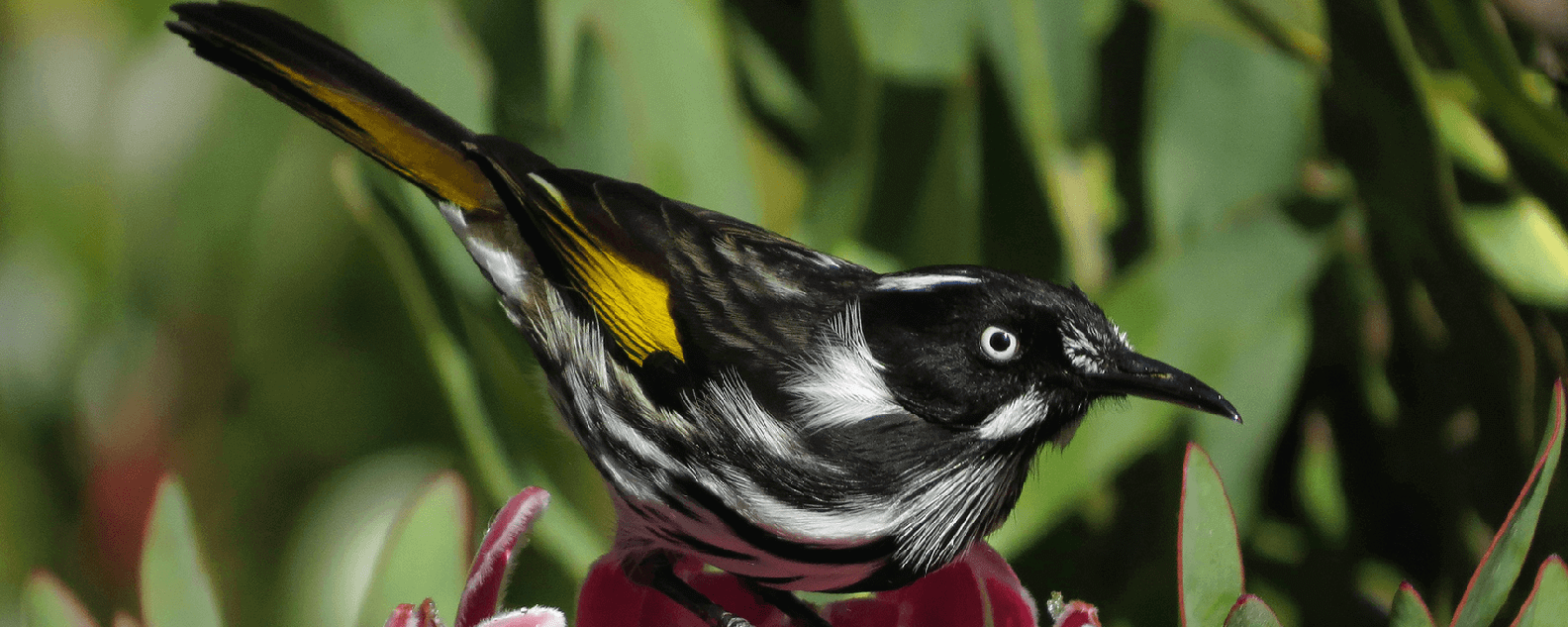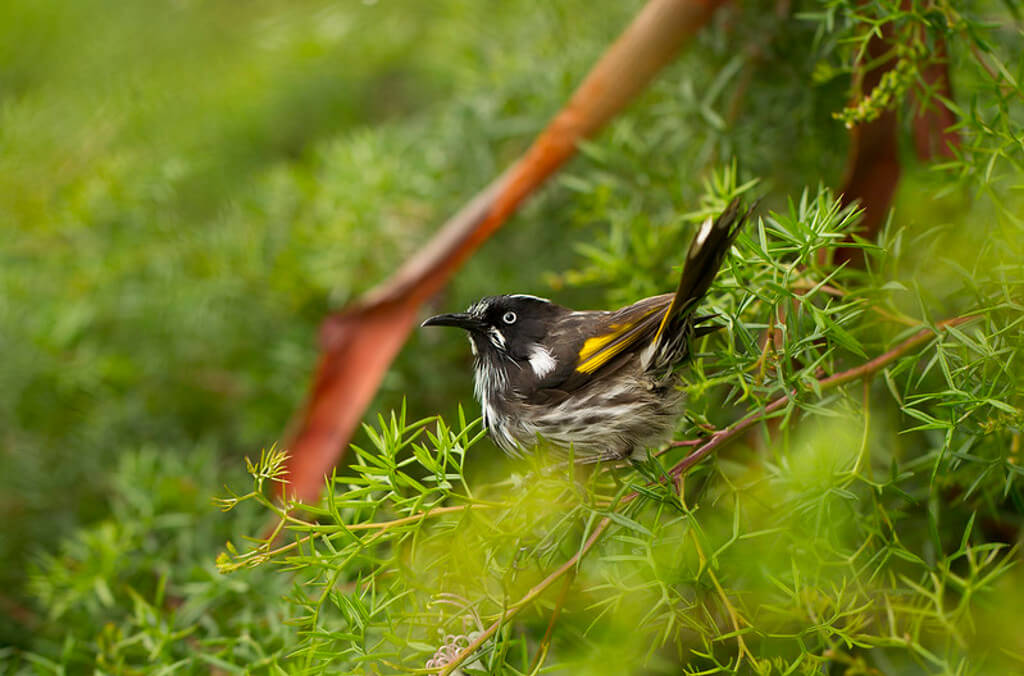Wildlife at the Blue Mountains Botanic Garden Mount Tomah
The Blue Mountains Botanic Garden Mount Tomah is surrounded by World Heritage listed national parks and provides year-round habitats and food sources for local animals and birds.

The diversity of local fauna includes over 150 species of birds, as well as marsupials, lizards and a variety of colourful insects. There is wildlife on the ground, in the trees and in the air.
The Mount Tomah area provides natural habitat for an array of marsupials, reptiles and birds. Around the garden you might see brush-tailed and ring-tailed possums, sugar gliders and greater gliders. Diamond pythons and eastern tiger snakes are rare, but have been spotted.
Each season brings an opportunity to see a variety of birds with more than 150 native species calling Mount Tomah home.
Bird watchers can spot the satin bower bird, eastern whip bird, superb fairy wren, superb lyrebird, wonga pigeon, yellow-tailed black cockatoo, Gang-gang cockatoo and many, many more.
Honeyeaters, the Red Wattlebirds, and even the shy Eastern Spinebills will make an appearance for Puya nectar which blooms in summer.
This is an exciting time in the Garden as the leaves turn into a patchwork of autumn colours and migrating birds pass through the area. Many species move away from their breeding territories into more open habitats and small birds flock together in mixed groups
Large flocks of Yellow-tailed Black-Cockatoos are a normal feature of winter as they gather at rich feeding areas, like the heathlands where they find banksia and hakea seeds. Their powerful bills ensure they have no problem cracking open the hard woody cones to get at the seeds inside.
In spring, many bird species are nesting and singing their most elaborate songs.


At the Garden you can
- Watch the resident satin bower birds collecting their favourite flowers to adorn their courtship bowers.
- Listen to the calls of the rosellas and black cockatoos as they delight in our fruiting trees.
- Lie back on the lush, green lawns and watch magnificent eagles cruise overhead.
- Be sure to bring your binoculars

Please do not feed the birds
Many of us love feeding the ducks and other birds however, there are good reasons why we shouldn't. Feeding wild birds upsets the delicate balance of nature and jeopardises their welfare.
If you are for our birds, please do not feed them.
- Human food can kill birds. Our snack foods contain salt and sugar which can be fatal for birds.
- Poor nutrition can lead to bone deformities, and reduces a bird's ability to cope with cold weather or fight off disease.
- Hand feeding makes birds aggressive and they become a nuisance.
- Feeding makes birds lazy. Birds fed by humans become dependent on that food. They turn into scavengers instead of the unique wildlife we love to encounter.